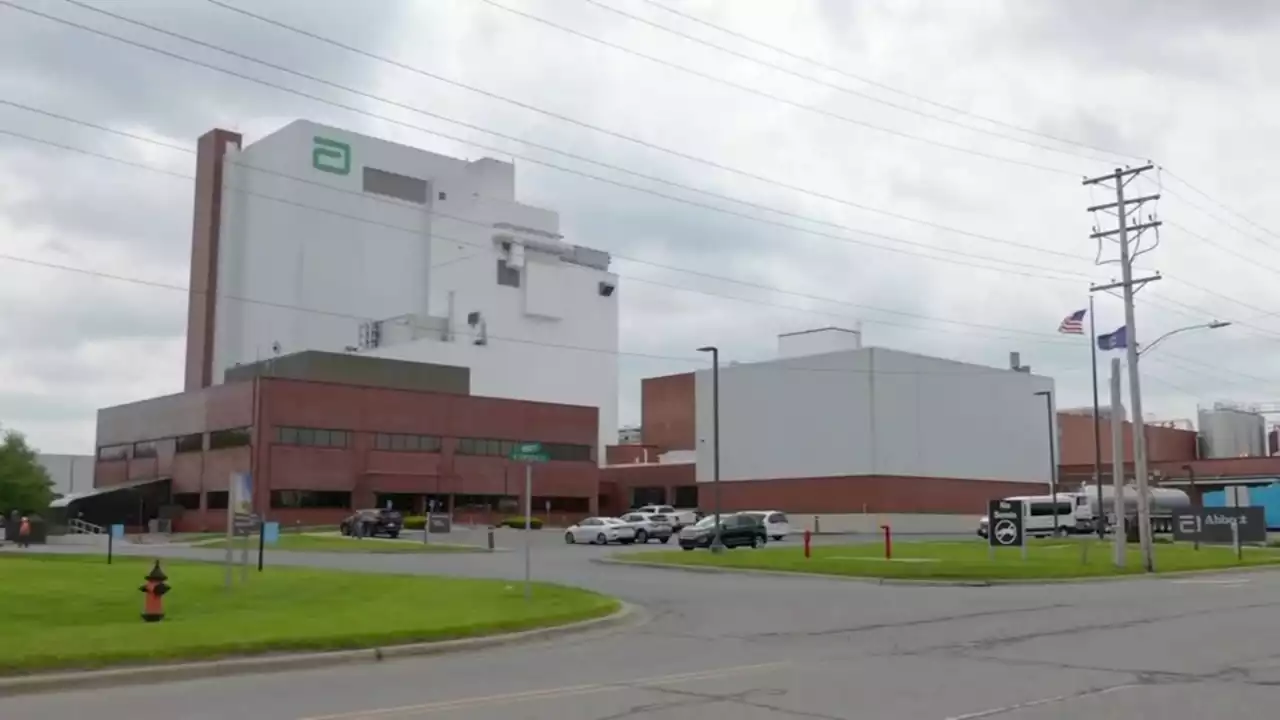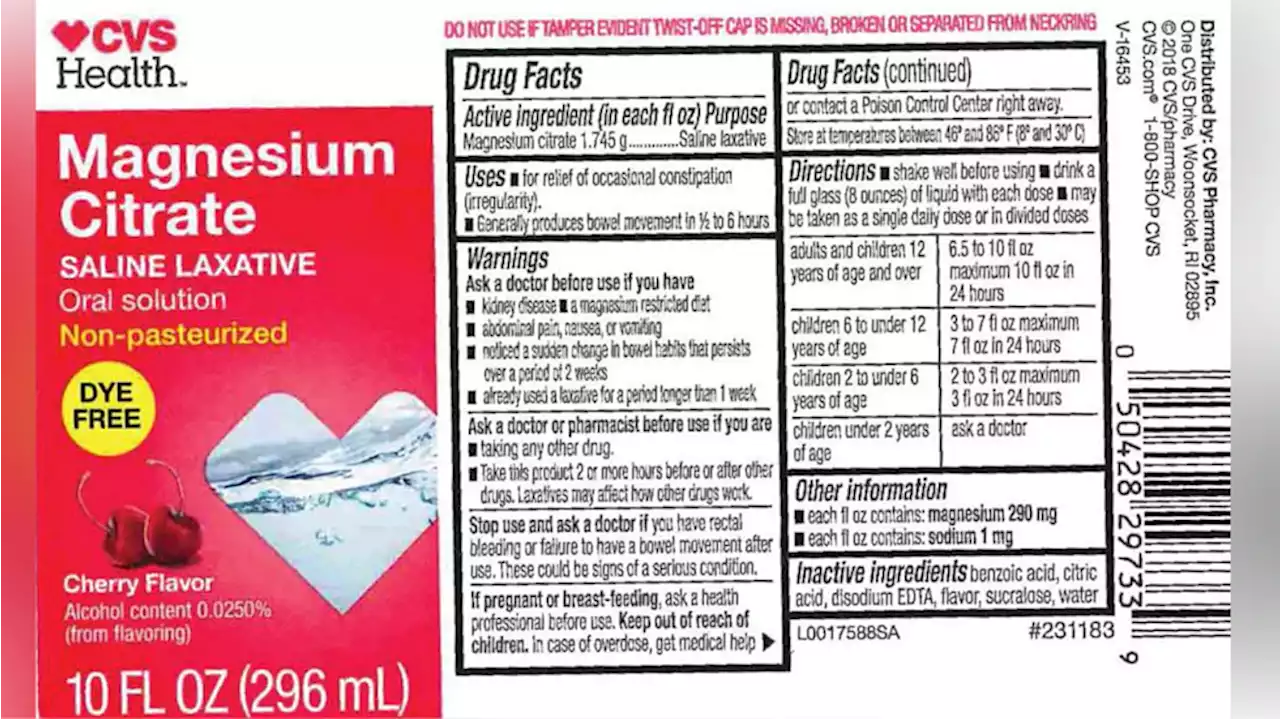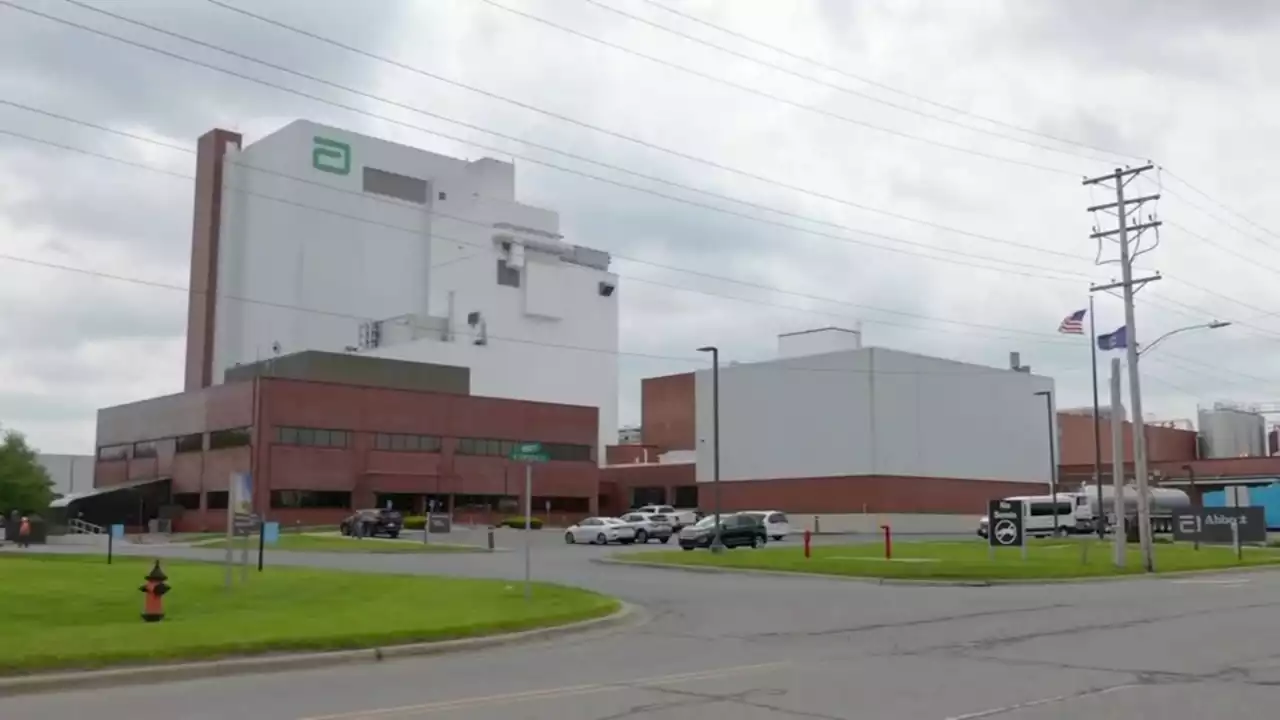Some of the operational deficiencies that helped trigger the massive shutdown of Abbott Nutrition's infant formula plant earlier this year have also been found at some other companies' factories, according to an ABC News investigation of some of the other formula makers that have stepped in to help fill empty American grocery shelves in the midst of the critical nationwide shortage.
The pathogen that prompted those concerns, Cronobacter sakazakii, can be widely found in the environment -- but in infants, it can be deadly.
Yet within the last five years, those companies -- Reckitt's Mead Johnson, Gerber, and Perrigo's PBM -- have also not been immune to operational and even contamination-related concerns. ABC News has reviewed FDA inspection documents for the three other domestic companies which, along with Abbott, have been responsible for roughly 90% of the country's formula market.
FDA investigators said that company records indicated Cronobacter was found in one of the plant's rooms, and that the area was subsequently sanitized. A plant operator was observed not washing his hands between glove changes, and not changing his gloves between touching non-food and food contact surfaces.
The potential problems the FDA discovered at the plant were addressed in time for later inspections -- but food safety experts told ABC News these issues can become a serious problem if not immediately dealt with. The Zeeland facility submitted a corrective action plan, promising "increased frequency of cleaning the areas where positive results were identified, evaluation and inspection of equipment" and "repairs to equipment and the facility as needed."
Reckitt said they "regularly review and enhance" their facilities' manufacturing processes "and invest in new technologies and equipment," adding that their "robust operating protocols meet or exceed the highest regulatory standards," which they employed while "safely" increasing infant formula amid the shortage.
"We are most interested in how aggressively a firm addresses and responds to potential contamination," the FDA spokesperson said. Lynn said that FDA investigators did what they were supposed to do: identify deficiencies for the companies to fix. A Gerber spokesperson told ABC News that their infant formulas go through up to 500 quality and safety checks, "many of which are above and beyond regulatory requirements."
In a statement to ABC News, Perrigo said they are "proud" of their compliance track record, adding that the Cronobacter within the plant had been found by their own self-monitoring, rather than by FDA investigators. Patrick Stone, a former FDA investigator, says factories that make infant formula should be held to a higher quality-control standard than other mass market food products. But too often, he said, "it actually takes an outbreak or something to happen before people wake up and say .... 'Why is this happening?'"After inspecting Abbott's Sturgis facility earlier this year, FDA chief Dr.
"You don't wait for the accident to happen before you build a stoplight," said Faber, the food safety expert. "You probe your factory for where pathogens could be lurking, and then adopt critical controls to eradicate them. Because there are no national requirements that Cronobacter be reported, doctors and labs are not required to report cases to their local health department -- which leaves the FDA to rely on consumer complaints and health care providers for on-the-ground data regarding infections.
United States Latest News, United States Headlines
Similar News:You can also read news stories similar to this one that we have collected from other news sources.
 FDA says multiple infant formula makers face Cronobacter contamination, operational deficienciesSome of the operational deficiencies that helped trigger the massive shutdown of Abbott Nutrition's infant formula plant earlier this year have also been found at some other companies' factories, according to an ABC News investigation of some of the other formula makers that have stepped in to help fill empty American grocery shelves in the midst of the critical nationwide shortage.
FDA says multiple infant formula makers face Cronobacter contamination, operational deficienciesSome of the operational deficiencies that helped trigger the massive shutdown of Abbott Nutrition's infant formula plant earlier this year have also been found at some other companies' factories, according to an ABC News investigation of some of the other formula makers that have stepped in to help fill empty American grocery shelves in the midst of the critical nationwide shortage.
Read more »
 FDA says multiple infant formula makers face Cronobacter contamination, operational deficienciesSome of the operational deficiencies that helped trigger the massive shutdown of Abbott Nutrition's infant formula plant earlier this year have also been found at some other companies' factories, according to an ABC News investigation of some of the other formula makers that have stepped in to help fill empty American grocery shelves in the midst of the critical nationwide shortage.
FDA says multiple infant formula makers face Cronobacter contamination, operational deficienciesSome of the operational deficiencies that helped trigger the massive shutdown of Abbott Nutrition's infant formula plant earlier this year have also been found at some other companies' factories, according to an ABC News investigation of some of the other formula makers that have stepped in to help fill empty American grocery shelves in the midst of the critical nationwide shortage.
Read more »
 FDA says multiple infant formula makers face Cronobacter contamination, operational deficienciesSome of the operational deficiencies that helped trigger the massive shutdown of Abbott Nutrition's infant formula plant earlier this year have also been found at some other companies' factories, according to an ABC News investigation of some of the other formula makers that have stepped in to help fill empty American grocery shelves in the midst of the critical nationwide shortage.
FDA says multiple infant formula makers face Cronobacter contamination, operational deficienciesSome of the operational deficiencies that helped trigger the massive shutdown of Abbott Nutrition's infant formula plant earlier this year have also been found at some other companies' factories, according to an ABC News investigation of some of the other formula makers that have stepped in to help fill empty American grocery shelves in the midst of the critical nationwide shortage.
Read more »
 FDA: Select laxatives sold at major retailers recalled due to contamination concernsA long list of laxative products sold nationwide are part of a voluntary recall due to possible contamination.
FDA: Select laxatives sold at major retailers recalled due to contamination concernsA long list of laxative products sold nationwide are part of a voluntary recall due to possible contamination.
Read more »
 If You Have This Soup in Your Pantry, Get Rid of It, FDA Warns — Best LifeThe FDA is warning that anyone with Marutomo Dashi Soup Base in their cabinet should get rid of it immediately due to a health risk.
If You Have This Soup in Your Pantry, Get Rid of It, FDA Warns — Best LifeThe FDA is warning that anyone with Marutomo Dashi Soup Base in their cabinet should get rid of it immediately due to a health risk.
Read more »
 Chuck Grassley joins Joni Ernst to (again) push the FDA to make birth control over-the-counterEXCLUSIVE — Amid Clarence Thomas’s lone call for the Supreme Court to reconsider the established constitutional protection of contraception access, Joni Ernst is reintroducing her long-standing bill to the Senate to expedite over-the-counter access to birth control.
Chuck Grassley joins Joni Ernst to (again) push the FDA to make birth control over-the-counterEXCLUSIVE — Amid Clarence Thomas’s lone call for the Supreme Court to reconsider the established constitutional protection of contraception access, Joni Ernst is reintroducing her long-standing bill to the Senate to expedite over-the-counter access to birth control.
Read more »
